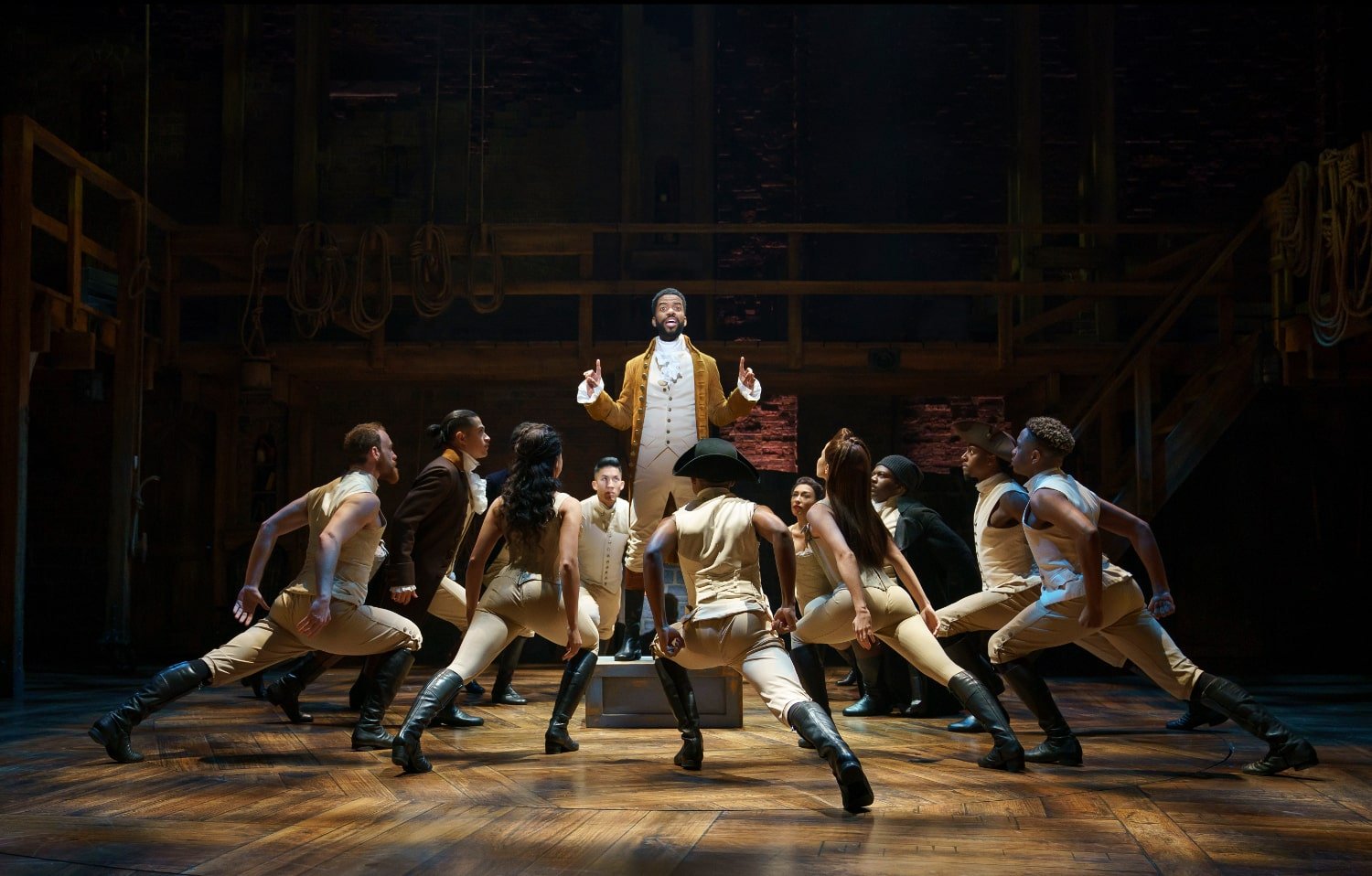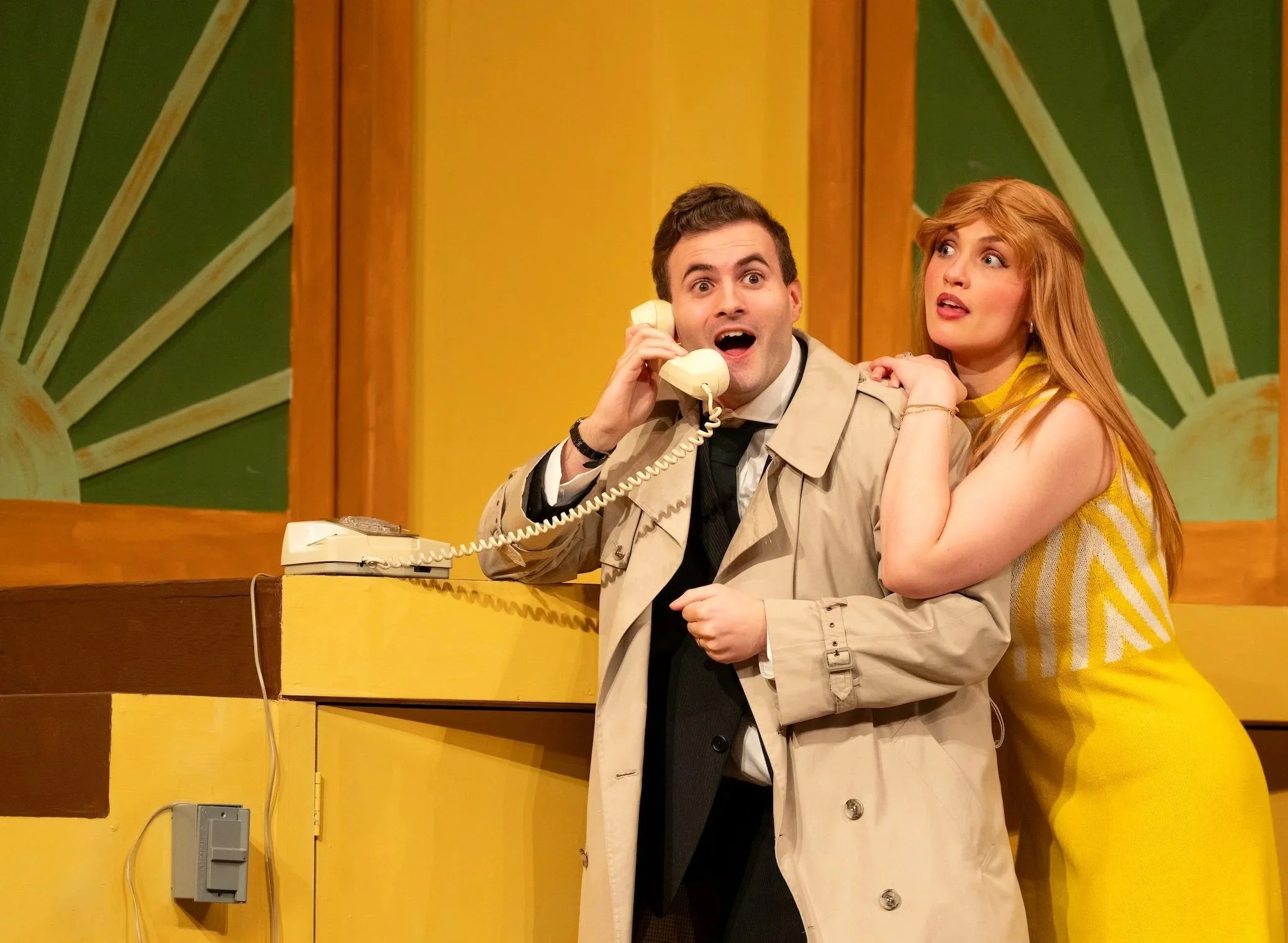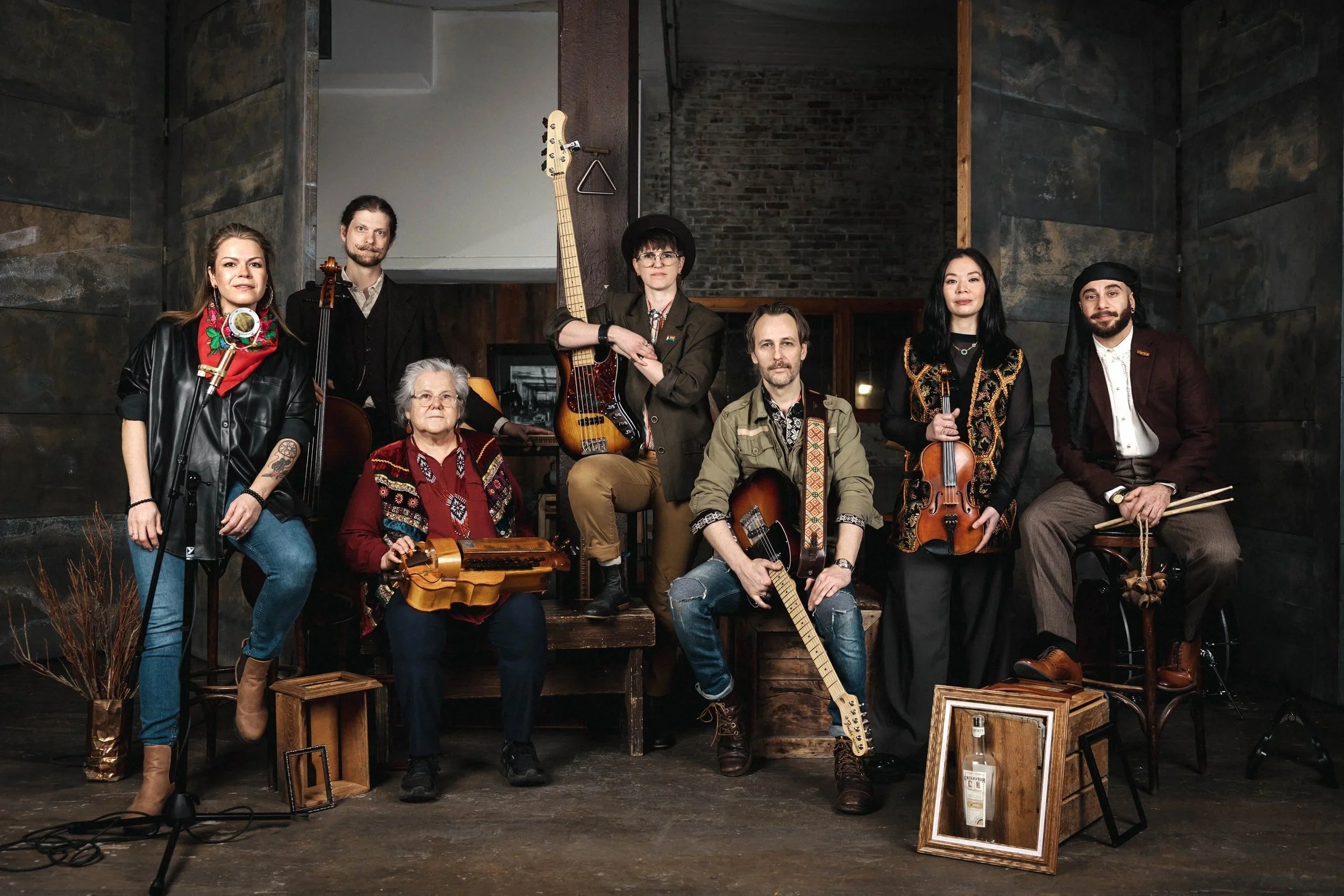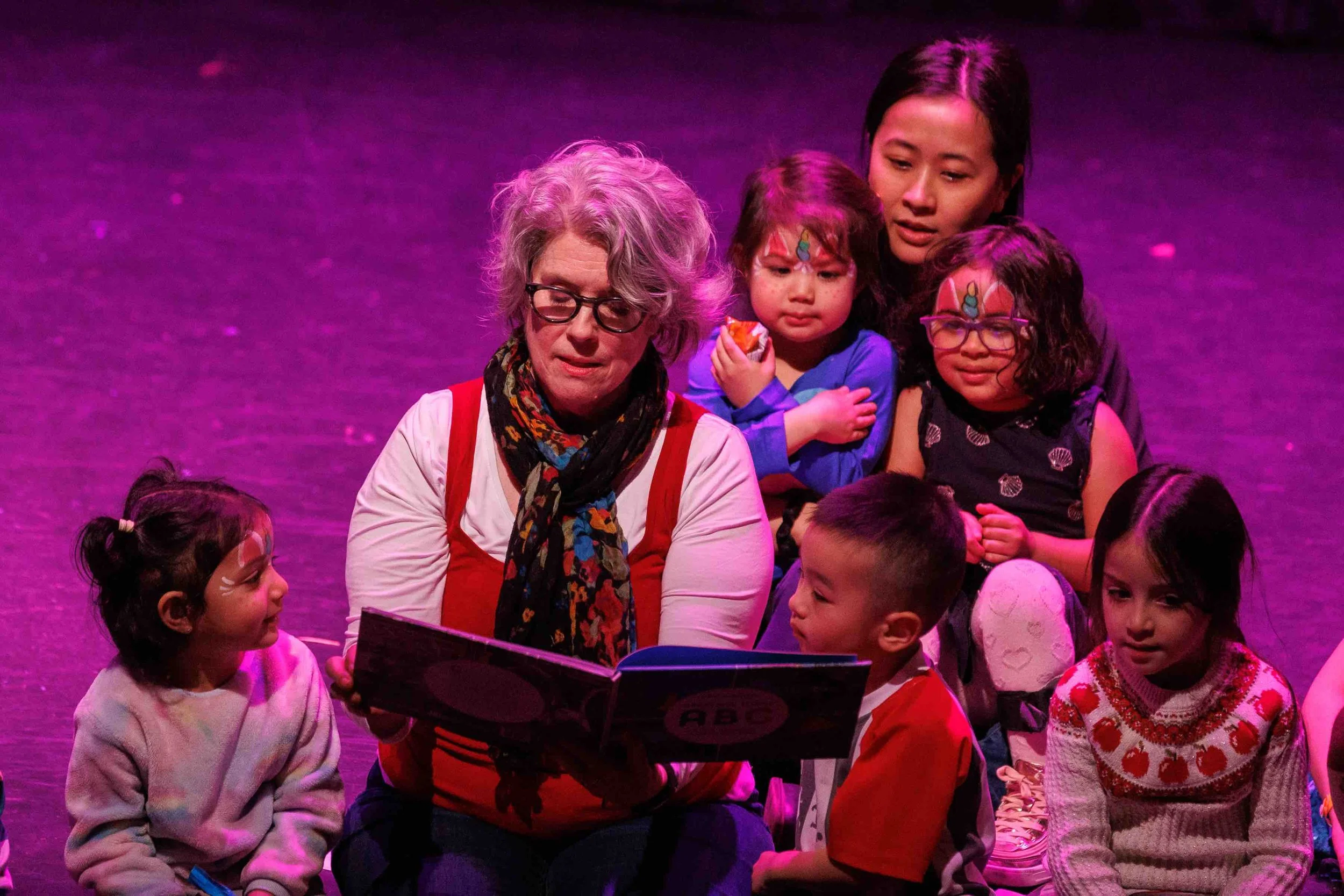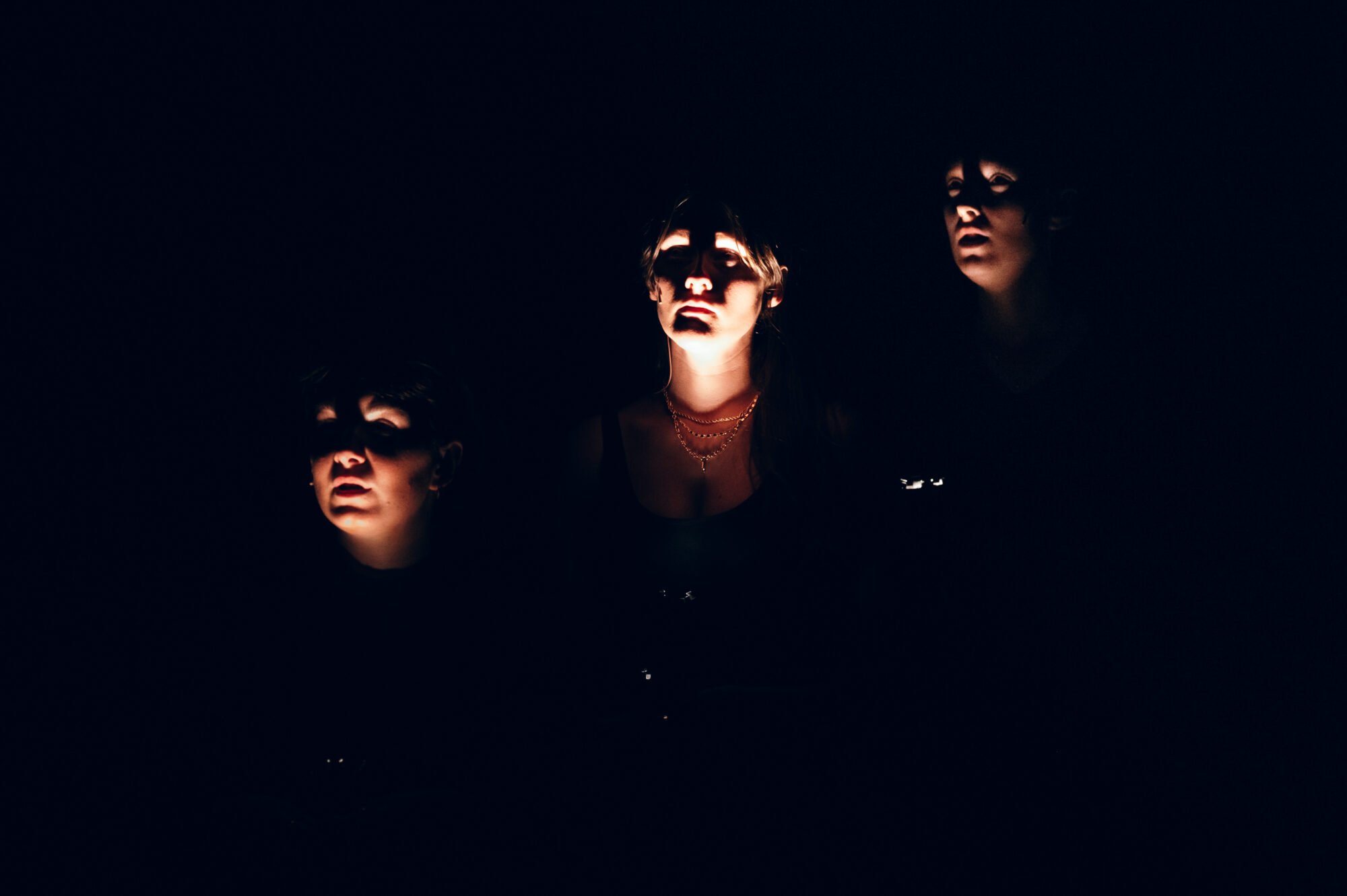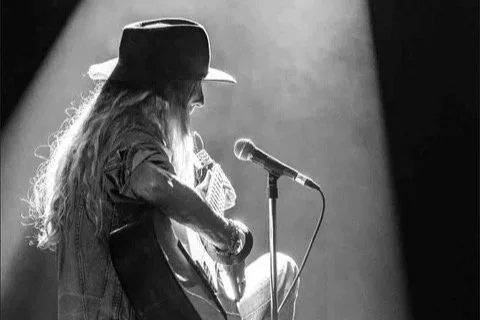Theatre review: Hamilton still feels artistically revolutionary as it finally hits Vancouver
Performances are strong across the board, and a lot of the singing sounds excitingly “street”
Julius Thomas III puts his own stamp on Hamilton. Photo by Joan Marcus
Broadway Across Canada presents Hamilton at the Queen Elizabeth Theatre until June 19
AFTER SEVEN YEARS, three American presidents, and one infernally long pandemic, Hamilton has finally hit Vancouver.
What does the show mean in Canada today, as we look southward to a post-Trump U.S. that’s wrestling with racial division and historic reckoning? At a time when George Washington monuments are being vandalized and some States are trying to limit the teaching of critical race theory?
For the 2,000-plus masked Hamil-Fans who cheered after songs and jumped to their feet in a standing O for opening night at the Queen Elizabeth Theatre, the large-scale show offers a blast of energized, inclusive levity—something that people are hungry for right now.
Top-flight cast members who have been honing their parts on tour each bring their own flow to this almost continuously sung- and rapped-through musical. In fact, Hamilton is really more akin to an epic, three-hour hip-hop opera. Like Andy Blankenbuehler’s mind-blowing choreography set around the stage’s clever spinning turntable, the production rides a whirlwind of breathless momentum—and it’s hard not to get caught up in it all.
Lin-Manuel Miranda’s spin on the story of America’s founding fathers still feels audacious—a unique mix of obscure historic facts and rap battles standing in for congressional debates. There are gun duels that reference The Notorious B.I.G’s “Ten Crack Commandments”, and hip-hop dances that embody American Revolutionary War battles.
The production puts the storytelling square in the hands of people of colour who were either absent from history books or depicted as slaves or servants. It’s a history lesson that may be second-nature for U.S. residents, but a little complex for Canadians—especially when it detours into writing constitutions and debating economic structure in the long second act.
Still, the bigger point is that all of America’s founding forefathers depicted here—even Alexander Hamilton himself–were white. In this production, they’re reclaimed by Black and Hispanic performers. (Even George Washington, who was a slave owner, but never mind.)
The plot follows the titular character’s quest to earn status on the battlefield against the British, later helping to form the first United States government before his own demise during a gun duel.
Puerto Rico-born Miranda connected with Hamilton’s scrappy immigrant story, and his rise from impoverished St. Croix orphan to American leader. The playwright originally took the role, but here Julius Thomas III—who’s performed the lead hundreds of times—puts his own smooth stamp on the part. He effortlessly delivers hits like the title track and the American-dream song “My Shot”, and captures the conflicted mix of insecurity and mouthy pride that drives the character.
Those willing to forego this month’s rent payment for tickets will be glad to hear that the rest of the performances are strong across the board. Fully fleshed-out roles include Hamilton’s broody, swath-cutting nemesis Aaron Burr (Donald Webber, Jr.), who unleashes a showstopping “Wait for It”; Paris Nix’s charismatic dual part as Marquis de Lafayette and Thomas Jefferson, with a fun B-Real-pitched rap; and Rock Negron’s sarcastic, scene-stealing King of England. Victoria Ann Scovens brings nuance and Bey-grade coloratura to Hamilton’s long-suffering wife Eliza, while Marja Harmon is fierce as Angelica, her sister who secretly pines for Hamilton. The latter’s “Satisfied”, with its woozy, thrillingly choreographed rewinding time, sounds a lot less “Broadway” than in movie and album recordings of Hamilton, and is a moody, empowering revelation.
In fact, a lot of the singing here feels a bit more “street” than Theater District or Disney+, and that’s this cast’s strength; the beauty of Miranda’s writing is that performers can put their own something-something on each role.
In these times it’s easy to get cynical about the musical’s more positive, essentially nationalistic messages about the Land of the Free’s constitution and the American dream—especially when lawmakers are busy banning the word “gay” and demolishing Roe v. Wade.
But what still makes Hamilton so exciting and subversive is what it’s asserting artistically: that rap, hip-hop, and R&B are complex and rich enough to take a place in the musical-theatre canon—and arguably could hold their own against a Puccini production. That’s not news anymore, of course: long ago, in the "before times", Hamilton took home Tonys, Grammys, and the Pulitzer Prize. But it still feels as revolutionary as any of the events it depicts.


